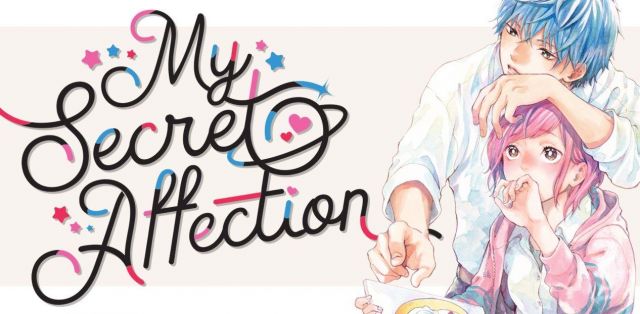At the start of January, a harmless-looking shojo romance series became a hot topic of discussion on Twitter. Displaying typically cute cover art of the two main leads, My Secret Affection’s premise garnered a lot of attention. Taking place in a world where a meteor shower caused the majority of humanity to be attracted to the same sex, protagonist Kazusa has feelings for her male childhood friend Ayumu and thinks she is the only heterosexual in the world.
When manga publisher Seven Seas announced that My Secret Affection was among its January releases, the response on Twitter was divisive to say the least. This post received over 3,500 quote tweets, the majority of which were negative. Many questioned why this manga even existed, while others outright called the series and its creator homophobic. Now that the first volume is available, did this series deserve the hate?
My Secret Affection’s Romance Premise Is Problematic

The plot of My Secret Affection is both its biggest draw and strongest point of contention. The idea of reversing the roles of heterosexuality and homosexuality in fiction to showcase the struggles of being gay has been done before, and questionably at best. Several people were reminded of a short film released in 2012 with the same premise. At the time, it was seen as impactful and was even nominated for awards at film festivals. As time passed, however, viewers started seeing problems with the film and its narrative. The film is incredibly heavy-handed in depicting discrimination and ends in tragedy — especially something to avoid for those who are sensitive to topics such as bullying and self-harm.
It also appears that the world at large has outgrown this concept. While it may seem like a good idea to write a story like this, many argue that simply asking “what if being gay was the norm?” fails to address the nuances of being a part of the LGBTQ+ community. One’s sexuality or gender identity not being the norm isn’t truly the problem, but rather the way one is treated because of this fact. This premise also fails to take other groups in the LGBTQ+ community, like bisexual or trans people, into consideration. However, in more conservative countries like Japan, this narrative may still hold some weight.
There is also something to say about the protagonist of such a story being straight and cisgender. Mangaka Fumi Mikami’s work is very much an allegory for growing up gay in an unaccepting world, but they are making this allegory while telling the reader to root for one of the few heterosexual characters within it. This can feel counterproductive, but given Mikami’s history, My Secret Affection feels more like lighthearted satire than a serious dive into such a sensitive topic.
Fumi Mikami’s Identity Has Given Critics Pause

Although there are currently only four chapters available in English, it appears that this topic is going to be handled with care. Mikami states in the opening pages of Volume 1 that this subject is important to them. Many people were quick to assume that Mikami is a straight creator who wants to be oppressed so badly that they wrote My Secret Affection. However, Mikami is a member of the LGBTQ+ community themselves and has made content expressing this. A Twitter thread by user PastelChum explains that Mikami wrote a work lightly criticizing gender roles and was subsequently harassed for it.
Mikami’s LGBTQ+ status is also reflected in small moments of this manga that can only be drawn from experience. The series opens with Kazusa’s girlfriend breaking up with her and, rather than feeling upset by it, she feels relief. Kazusa went into this relationship wanting to fall in love with Tsukiko, hoping that it would happen if they started dating, but she was unable to develop those feelings. This moment can hit for readers who have tried getting into the “right” relationship and failed to make it work.
That said, Mikami’s story isn’t filled with tragedy or negativity. It largely focuses on the bond Kazusa and Ayumu have, while the concept of heterosexuality is treated more like a relic of the past than anything else. It truly is what Seven Seas claims it to be: a shojo romance with a sci-fi twist. Ultimately, My Secret Affection deserves to be looked at with a critical lens because it handles such a sensitive topic. However, based solely on what’s currently available to English-speaking audiences, it does not deserve the hate that it received earlier this year.















Leave a Reply